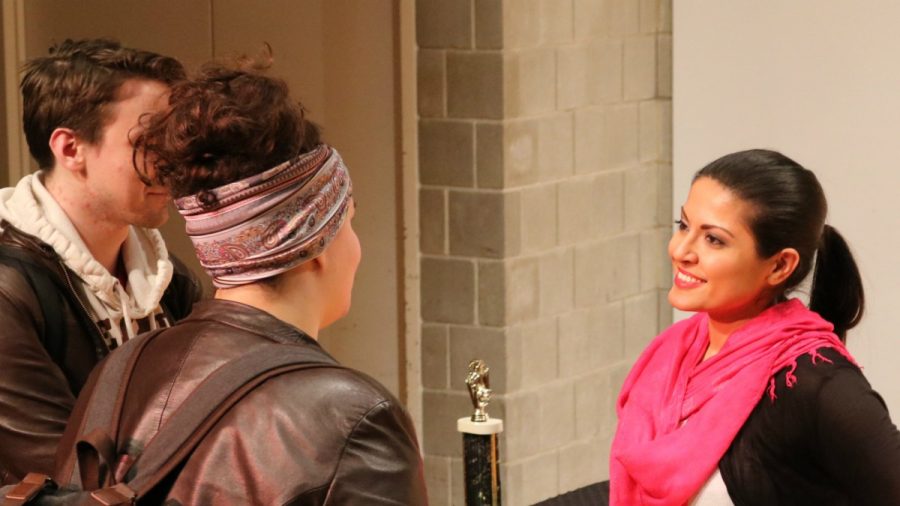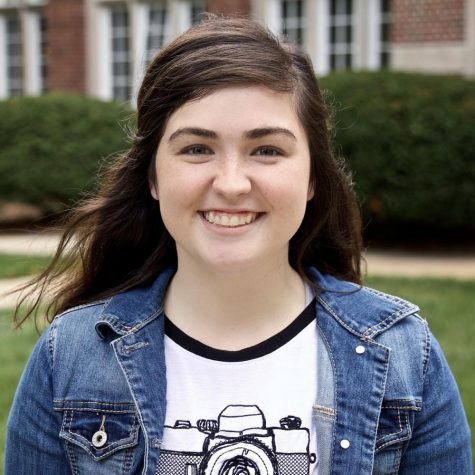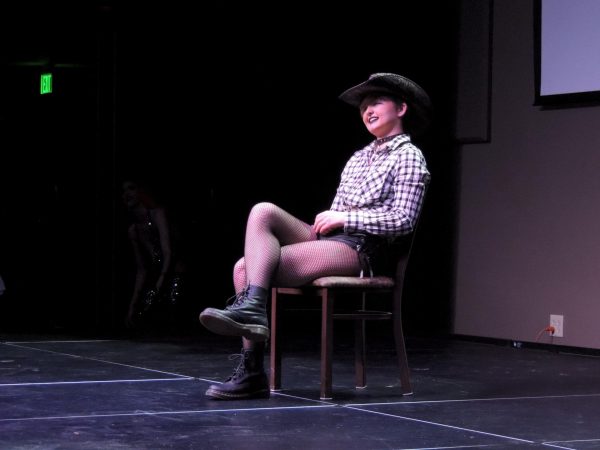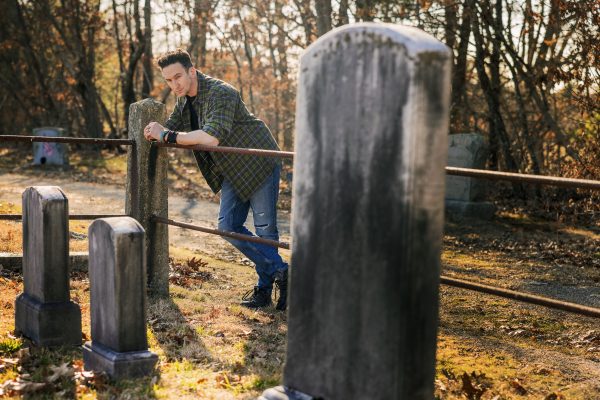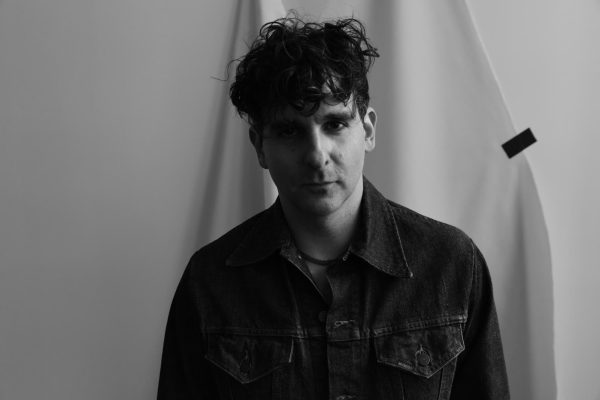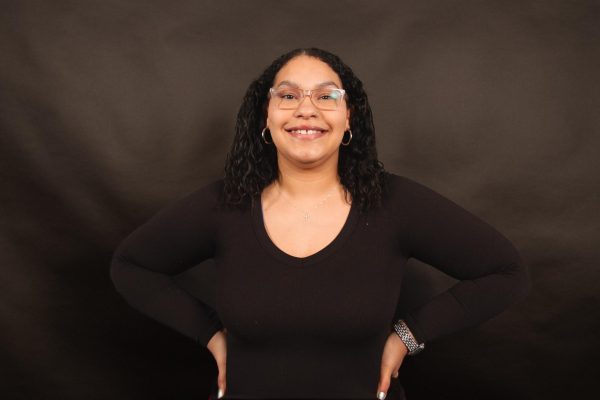‘They Call Me Q’: A celebration of acceptance, diversity
February 14, 2017
INDIANOLA, Iowa — “They Call Me Q,” written by Qurrat “Q” Ann Kadwani, made a stop at Simpson College as a part of the show’s national college tour Monday night.
Around 150 students, faculty and Indianola residents gathered in Lekberg Hall to follow the solo play’s journey through Q’s life in the Bronx, starting from her birth.
“I’ve always loved solo plays,” Q said in a Q&A after the performance. “The first one I saw, I think I was 18 or 19, was by my idol Sarah Jones, and I didn’t know what I was watching. And I was so enthralled. I was like, ‘One day, I wonder if I could do this.’”
Q took the audience on a journey through her life, guiding us with 13 characters, ranging from her traditional mother to a teenage vendor she met briefly while in India.
These characters, all portrayed by Q, told the most important lessons she had learned in her life up to present day.
“I did the characters first, and I thought, ‘How could I weave it?’ And I knew that I wanted to kind of do this linear style, so I start off with childhood through adulthood,” Q said.
This blend of characters told an hourlong story filled with comedic, memorable moments.
Though “They Call Me Q” was a comedy overall, a few dramatic moments created contrast throughout the show.
One of Q’s struggles in the show was the acceptance of her culture. Growing up, she always wished to be different.
“I wanted to be like everyone else,” she said in the performance. “I wanted to be like the Puerto Rican girls in my class. No, not be like them. Be them.”
This led to conflicts throughout the show, mainly with her parents, surrounding diversity, values and finding herself.
“Americans, as a whole, I think we’re realizing that diversity is a beautiful thing,” Q said. “And that’s what America is founded on. That’s the founding principles, and it’s time to represent ourselves.”
Q’s last message was the concept of acceptance and how she hopes to make a difference in the lives of those who come and see the show.
“When we talk about diversity, we have to talk about power and how we see that played out in every part of our lives, especially today,” she said. “When I started performing it, I realized how I had structured some parts of it which is individual versus institutional power. That’s something that’s really important, and I think we should talk about it because constantly in our society we come up against what power do we have as an individual versus the institutions we have in our society.
“I’d like to leave it by saying that everyone has a voice. All of you have a voice. I use my voice through theater to try to get people to think differently about themselves, about other people who they may know or may not know,” Q said.
At the end of the performance, after her journey in the Bronx and even back in India, Q learns to accept herself and all the pieces of her various cultures that made her who she is today.
“I’m proud to be Indian, American, a New Yorker and from the Bronx,” she said. “I’m not scared to love myself anymore.”



